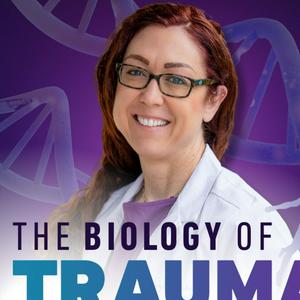Grief, regret, loneliness, inflammation, pain. There are deeper layers than we are even aware of.
Dana was a family physician who had managed gut issues for years. Constipation. Bloating. Acid reflux. She had every tool available to her. She rotated medications, over-the-counter laxatives, and antacids. She pushed through. Then one brave question changed everything. I asked her: what happened that should not have happened? Her posture collapsed. The tears came. And she made the connection — that was when my gut issues started.
This is the biology behind what so many of us carry without knowing it. In the main episode this week, we explored how grief and gut health are connected. Now I’m taking you deeper into what’s actually happening in your body when grief goes unrecognized — and the three types of grief that are hardest to name.
In this episode you’ll hear more about:
00:00 Grief, Regret & Going Gently: Setting the Tone
00:33 Check-In: Where Are You With Grief Right Now?
01:07 Prepare Your Support Tools (So You Don’t Go Into Overwhelm)
01:51 Dana’s Story: When “Managing Symptoms” Isn’t Healing
04:21 The Brave Question: “What Happened That Shouldn’t Have Happened?”
05:03 When the Body Connects the Dots: Stored Grief & the Gut
07:33 The 3 Hardest Types of Grief: Absent, Attachment & Heart Shock
09:01 Grief Isn’t Stress: A Whole-Body Trauma Response
10:00 Guided Body Awareness: Hand on Heart, Hand on Gut
12:44 Stomach Support Practice + Closing Message to Your Belly
13:21 Wrap-Up: Completing the Session
Grief is more than an emotion. It is a whole-body response. It creates overwhelm in a way that stress does not. When grief is stored, the gut holds it. The posture holds it. The throat holds it. Dana didn’t just need to grieve what happened. She needed to grieve the silence, the years of self-blame, and the cost to her health she hadn’t seen. Most of us carry grief we haven’t named yet.
Resources/Guides:
Download the 3 Most Common Biochemical Imbalances Guide — The biochemical patterns that disrupt normal nervous system function and keep the body stuck in overwhelm.
Biology of Trauma book — Dana’s story begins in Chapter 7 and continues in Chapter 9. Available everywhere books are sold. Get your copy
→ Watch the video version on YouTube
→ Check out the main episode — EP 161: Dopamine and Depression: The Metabolic Link You Need to Know
Try this practice this week: Notice when your gut clenches, your posture collapses, or a lump forms in your throat. Before you push through, pause. Put one hand over your belly. Give it a message: “I see what you’ve been holding. We don’t have to go there today.” Presence interrupts the pattern of pushing through.
Leave a review on Apple Podcasts, Spotify, or YouTube. It helps others find trauma-informed care.


